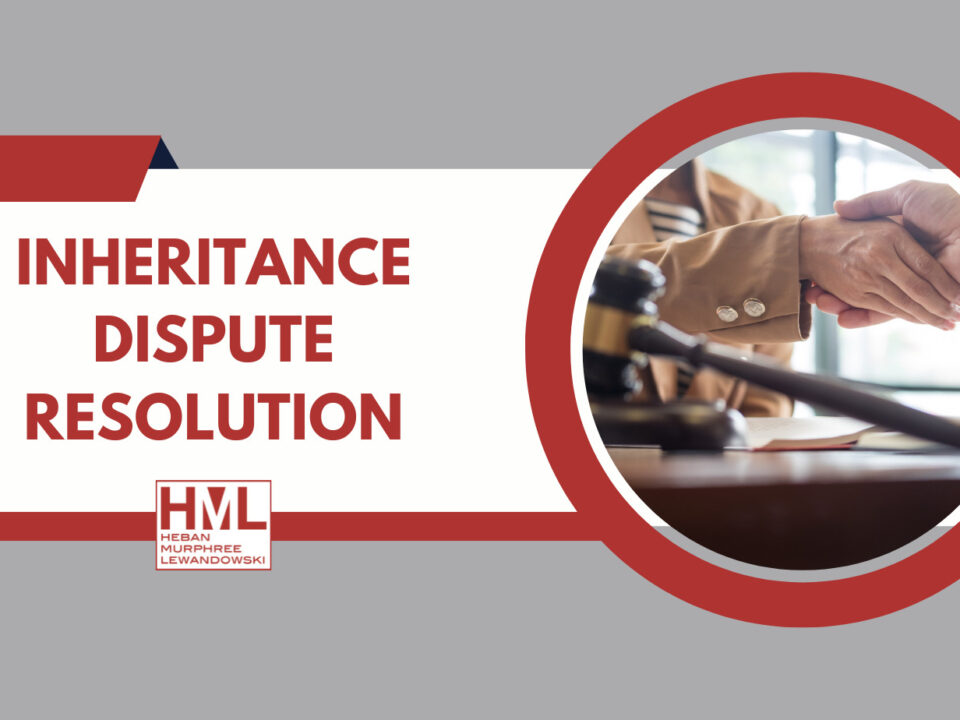- EXPERIENCED LAW FIRM IN TOLEDO, OH
- (419) 662-3100
How to Use a Family Settlement Agreement in Ohio

What Happens When an Ohio Estate Can’t Pay Its Debts?
November 7, 2025
Resolving Co-Executor Conflicts in Ohio Probate Court
December 1, 2025When Can Families Change Who Inherits What?
When a loved one dies, families often face disputes over estate distribution, which may not align with actual family dynamics. Caregiving roles, outdated wills, perceived fairness, and practical distribution issues can all cause conflict, even if the legal plan is clear.
This is where a Family Settlement Agreement becomes one of the most powerful tools in Ohio probate. It allows heirs to re-allocate assets by agreement, avoid litigation, and close the estate transparently under court oversight.
A Family Settlement Agreement doesn’t rewrite the will so much as it offers an alternative roadmap. The court still recognizes the will or the intestacy statute as the starting point. But once all interested parties sign off, the family can rearrange the distribution. For example, instead of selling the home and splitting the proceeds, the heirs may agree that one sibling keeps the house and offsets the value with cash or other assets.
Courts permit this flexibility to promote peace, prevent unnecessary lawsuits, and respect the informed choices of adult beneficiaries. However, rules prevent using it to avoid creditors, evade taxes, or exclude entitled parties. If it attempts any of these, probate courts won’t approve it.
Why Court Approval Is More Than a Formality
Even when the family is in full agreement, probate courts typically require approval of any alternative distribution, particularly when minors, disabled beneficiaries, or real estate are involved. The court’s approval supplies enforceability. It protects the executor from liability, creates a clear record for title companies and banks, and confirms that creditors and tax authorities are not harmed.
Most judges are familiar with these agreements and welcome them if parties are aligned, the math checks out, and the deal respects statutory priorities.
Creditors and Taxes
Ohio law establishes a strict order for paying debts and expenses before beneficiaries receive their share. Funeral costs, administrative fees, family allowances, federal debts, last-illness medical bills, and Medicaid Estate Recovery all need to be considered and properly addressed. A Family Settlement Agreement can only cover the remaining assets once these obligations are fulfilled.
Families sometimes assume they can “trade around” assets while creditors wait. They can’t. Nor can they distribute property too early, before the six-month creditor window closes, or they risk clawbacks and potential personal liability for the executor.
Tax consequences also deserve more attention than they often get. When one beneficiary “gives up” assets so another can take more, the IRS may treat the shift as a taxable gift if it is not properly structured. Timing, valuations, professional appraisals, and the language of the agreement all matter.
What an Agreement Usually Contains
A Family Settlement Agreement can be customized for each estate, but generally follows a predictable structure that clarifies the court’s understanding.
After outlining the family’s circumstances and why an alternative distribution is preferable, the agreement identifies who is signing, who represents minors or disabled heirs, and who will present the document to the court. From there, the agreement moves into the substance of the deal and the protections needed to make it enforceable.
A strong Family Settlement Agreement typically includes:
- A background and purpose section explaining the family dynamics, the will or intestacy framework, and the reason the parties are choosing an alternate distribution.
- Defined roles and signatories, including clarification of who represents minors or legally disabled beneficiaries and how each party participates in the agreement.
- A detailed re-allocation plan describing exactly how property will be redistributed, who receives real estate, financial accounts, or personal property, and confirming that all creditors and taxes will be addressed under Ohio law.
- Mutual releases in which the beneficiaries agree not to pursue estate-related claims up to the date of the agreement, helping ensure finality.
- A request for court approval, ensuring the agreement becomes part of the official probate record and is fully enforceable.
Who Must Sign
For a settlement agreement to work, every interested party must participate. A missing signature can undermine the entire plan. If a beneficiary is a minor or legally incompetent, the court will appoint a guardian ad litem to review the agreement and confirm it’s in that person’s best interest. If a beneficiary lives out of state, the probate court typically accepts their notarized signature, but additional documentation may be required.
Working with counsel is valuable because many families don’t know who qualifies as an “interested party,” especially in blended families or inheritance cases from different branches.
Pitfalls That Derail Agreements
Some families try to “just write something up” for the executor to follow, risking acting outside their authority without court approval. Banks and brokers may refuse distributions without a court order. Also, attempting to reassign non-probate assets through probate is a mistake, as these assets will still pass to the original beneficiaries unless their designation changes.
Families also run into trouble when they try to accelerate distributions before the estate’s debts are fully known. Early distributions are often recoverable, but clawing money back from family members is exactly the conflict the agreement was meant to avoid.
A Family Settlement Agreement is effective only if done correctly. We help clarify calculations, identify signers, handle creditor and tax issues, prepare the agreement, and present it clearly and enforceably to probate court.
If your family wants fairness without a fight, we’re ready when you are. Contact us to get started.








